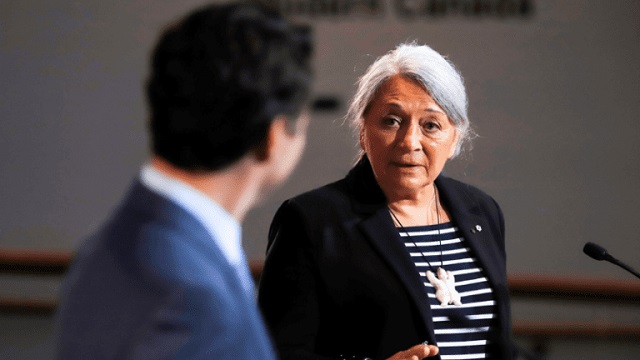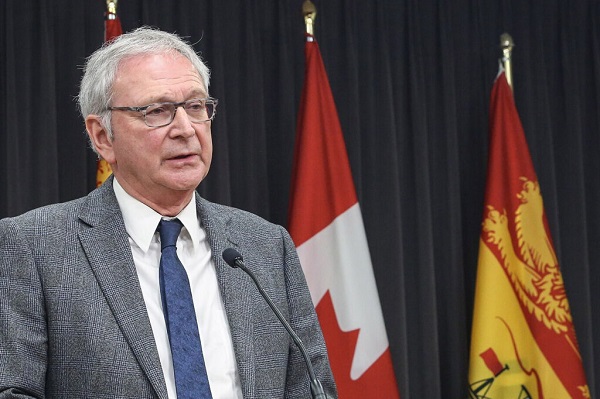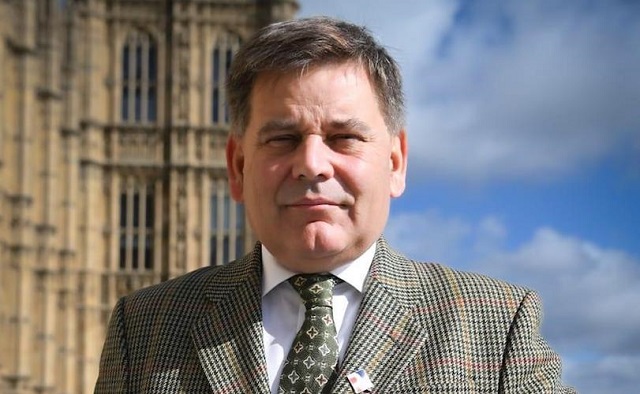MacDonald Laurier Institute
Canada, it’s not racist or xenophobic to talk about immigration

From the MacDonald Laurier Institute
By Joe Adam George
The sustained public antics post-October 7 has caused otherwise pro-immigrant Canadians to question the viability of our current policy
Since 1971, when Prime Minister Pierre Trudeau officially adopted a policy of multiculturalism, Canada has enthusiastically promoted and celebrated cultural diversity as a fundamental element of our national identity.
Perhaps wanting to step out of his father’s shadow and create his own legacy, in 2015, Prime Minister Justin Trudeau upped the multicultural ante by several notches, declaring to the world that Canada would become the “first post-national state”. In a now-infamous interview Trudeau claimed “there is no core identity, no mainstream in Canada.”
Last year, his government announced plans to welcome 500,000 new immigrants per year by 2025 and maintain those numbers annually in the subsequent years. Amidst growing public opposition to high immigration levels, Statistics Canada reported last month that Canada’s population grew by more than 430,000 during the third quarter of 2023 alone, marking the fastest pace of population growth since 1957 and pushing the country’s population past 40.5 million.
PM Trudeau’s pursuit of a post-national vision for Canada – through a blend of substantial hikes in immigration and a systemic push of woke progressivism that has effectively revised and erased Canadian history – has come at a significant cost to Canada’s national unity and security.
Examples of this disunity and lack of social integration have been particularly apparent in recent months. Following Hamas’ October 7 attacks against innocent Israeli civilians, the Jewish community in Canada have been subject to incessant acts of malice and violence by pro-Palestine protestors. Over the last three months, these dissenters have become a nuisance and a threat to all Canadians – from blocking traffic at major intersections and disrupting Christmas celebration events to intimidating businesses and shoppers, and in some extremely worrying instances, plotting to carry out terror attacks on Canadian soil.
Raging antisemitic and anti-Western speeches by controversial Muslim imams like Adil Charkaoui and Sheikh Younus Kathrada have added fuel to the fire (Charkaoui served jail time in 2003 on charges of terrorism and was later allowed a pathway to Canadian citizenship by a judge).
Predictably, questions about uncontrolled immigration and limited social integration have gained considerable prominence in the public square, so much so that the once-taboo topic of immigration could become a hot-button issue in the next federal election. The immigration discourse was already gaining traction on account of joint economic woes and the housing crisis, but the sustained public antics post-October 7 has caused otherwise pro-immigrant Canadians to question the viability of our current policy.
Eric Kaufmann, professor of politics at the University of Buckingham and Senior Fellow at the Macdonald-Laurier Institute, said to me in an interview, “A lot of the talk about integration misses the mark because it only takes into account integration indicators like people getting jobs, learning the language, voting, participating economically and politically, and even feeling a certain attachment to their adopted country, all of which I think are going reasonably well. The main driver for integration problems that we are currently seeing in Western countries is the degree of ethnocultural shifting that is taking place on account of mass immigration. This is bringing a much greater diversity of ethnic identities and religions and results in the importation of overseas conflicts into Western societies leading to inter-communal clashes between groups such as Sikh-Hindu, Muslim-Hindu or Muslim-Jew. The other factor is Islam and its perceived incompatibility with Western culture and values. All this contributes to the rise of populist movements across the globe, particularly in Europe.” Last month, an Angus Reid poll found that more than two-in-five (43%) Canadians believe Islam to be a “harmful presence” to their country.
Out of the over 1.3 million new immigrants who permanently settled in Canada from 2016 to 2021, approximately 1.14 million of them belonged to racialized communities, with most of them coming from South Asian, African and Arab countries. In a 2018 paper, Kaufmann and Matthew Goodwin argue that white Canadians will be a minority around the year 2050. It must be pointed out that this discussion is not about any deranged notion of preserving racial purity but about the effect of quick and massive ethnocultural change. Even with some mixing between cultures, geographic, marital and social patterns remain highly structured by ethnic identity in Canada; this is as true of the majority as of minorities, with white movers avoiding more diverse locations such as Richmond, BC or Brampton, ON. This attachment to one’s own group has been proven in the scholarly literature to be independent of any dislike of outgroups (except at times of violent conflict). Yet any mention of a sense of loss in the disruption of a previously dominant culture is immediately taken as hostility to outgroups and thus racist – a dishonest assessment.
Other countries that have traditionally welcomed a significant number of immigrants are now admitting that their immigration levels are out of control. Leaders (often privately) recognize that while linking immigration to job market needs, infrastructure capacity and economic growth opportunities is vital, greater value ought to be attached to encouraging immigrants to integrate and contribute to advancing a shared national vision. With elections looming in some of these countries, governments are taking belated measures to reduce the overall intake to appease their electorates.
The Danish government has advocated for a “zero refugee” policy. Australia announced new policies that are expected to cut down immigration by 50%. The UK Parliament passed a bill – dubbed “the toughest ever anti-illegal immigration legislation” – which aims to send illegal asylum-seekers to Rwanda. Germany approved legislation that would make it easier for authorities to quickly deport rejected asylum seekers. U.S. lawmakers are negotiating a deal to enforce security along its southern border with Mexico to combat illegal crossings.
It is worth highlighting that Denmark, Australia and Germany are run by left-wing or centre-left governments; mass immigration and social integration can be issues of concern to parties of all political stripes and not limited to “racist right-wing bigots” and “conservatives” as some might lazily portray. When asked which country Canada could take inspiration from to improve immigration controls, Kaufmann mentioned the Social Democrats in Denmark as exemplary.
“I think lowering numbers is absolutely at the heart of any successful immigration policy. I don’t think you can have high [immigration] numbers and not have a problem and you may even have different kinds of problems like antisemitism or anti-LGBTQ sentiments or communal conflicts or radicalization. Essentially, my view is that with high numbers and rapid cultural change, you simply get a loss of social connectedness. You have people in their bubbles moving around and that’s fine but when you get two groups that have an issue with each other, then you’re going to either have a conflict or you tend to get less civic-minded”, he said, citing renowned American political scientist, Robert Putnam’s thesis ‘E Pluribus Unum: Diversity and Community in the Twenty-first Century’. Putnam contends that sharp increases in immigration and ethnic diversity tend to reduce social solidarity and social capital in the short run, meaning social trust (even of one’s own race) would be lower, altruism and community cooperation rarer, and friends fewer, although on the flipside, it is likely to have long-term cultural, economic, fiscal, and developmental benefits.
When asked what continued mass immigration could mean for Canada, Kaufmann said, “I think Canada is moving in the direction of being a low-cohesion society. I mean, if that’s the choice they want to make, that’s fine. I think it’s partly because political correctness is stronger in Canada than almost anywhere else. So, it’s impossible to really have an honest debate about immigration which is one reason why the numbers are so high in Canada compared to other countries. It’s about what the elites will allow you to talk about in a democracy without labeling you a racist, which is completely dishonest, but that’s the way the debate has been conducted in Canada, as some sort of a sacred cow. It’s less sacred in Europe and so there’s more of a real debate around immigration numbers.”
Last month, fueled by concerns over growing antisemitism, the German state of Saxony-Anhalt made it mandatory for applicants wishing to live in the state to recognize Israel’s right to exist. In 2006, the Netherlands made it compulsory for prospective immigrants to watch a film with images of gay men kissing or topless women as part of the civic integration exam to test their readiness to participate in the Dutch liberal society.
When asked if such a values-based test or declaration for prospective immigrants was feasible, Kaufmann said, “People are allowed to have different opinions, even if they may be obnoxious. Even within the citizenry, there are people who don’t recognize the state of Israel and that’s an opinion you’re allowed to have. I think the test should probably focus on subjects like toleration of gays, Jews and women. However, I don’t think Canada is willing to consider qualitative culture-based criteria, such as assimilability to Canadian values, to assess potential immigrants, like they currently do in countries like Denmark, even though I think it would be a good idea. Canadian immigration is completely rooted in voodoo-based reasoning and there’s no economic or demographic rationale to it. The idea that immigration is a sustainable solution to the aging problem, for instance, has been comprehensively debunked. Somehow, it is a religion amongst Canadian elites and to some degree, across political parties. The Conservatives are too scared to touch it out of fear of being branded as racist and anti-immigrant by other parties and the media, even though most of their voters want a lot lower numbers. Regardless, you’ve got a cross-party consensus which is not based in reality.”
In 2016, federal Conservative leadership hopeful Kellie Leitch was heavily criticized, even by members of her own party, for floating the idea of screening out would-be immigrants to Canada, if they were openly intolerant or did not accept Canadian values and traditions such as respect and tolerance for other cultures, freedom of speech and equality.
The systematic dismantling and belittling of Canada’s history by our governments and institutions has left many immigrants seeing very little worth embracing in Canada, often resulting in a retention of their original values– some of which are contradictory to Canadian values and pose a hazard to the safety and security of vulnerable groups like LGBTQ, Jews, women and children.
While Kaufmann does not think Trudeau’s post-national comments have had an impact on the ground on their own, he said they reflect the mindset of the cultural left-dominated or progressive-dominated society.
“The media and the political culture in Canada are dominated by progressivism on any cultural issues, whether that be LGBTQ, religion, ethnicity or immigration. The longstanding narrative in Canadian academia about Canadian identity is that Canada’s just a multicultural country and the only thing it stands for is tolerance and diversity. In a way, multiculturalism is, more or less, a restatement of a post-national country that doesn’t really have a national identity and that’s what the elites want. It is a national identity that claims to have the moral high ground by proclaiming we don’t care about ethnicity or culture because we’re so virtuous and that is really what Trudeau implied. This is still a kind of national identity but based on pride in being holier than thou. His comments reflect an elitist philosophy that has led to record levels of immigration and poor integration.”
The Israel-Hamas war has highlighted the failure of integration inevitably resulting from rapid and uncontrolled mass immigration. Scenes of protestors disrupting Black Friday shopping and Christmas celebrations, or even threatening to kill people in the presence of police officers, were unimaginable in Canada not long ago.
First or second-generation immigrants like me – whether they be permanent residents, students, illegal aliens, or citizens – have immensely benefitted from the magnanimity of Western countries like Canada. In many cases we were offered refuge from the hatred, tyranny, racism, sexism, terrorism, and violence of our home countries. It should not be considered controversial or racist to point out instances of fellow immigrants treating Western generosity and tolerance as weaknesses to be manipulated, bragging about their growing numbers and the political clout they have amassed in liberal democracies (apparently without awareness of the hypocrisy apparent in their support for illiberal tyrannies whose violence drove them to take refuge in the West in the first place). Aaron Wudrick, Director of Domestic Policy at the Macdonald-Laurier Institute, encapsulates this view accurately in his tweet: “The important question isn’t how Canadians identify in terms of ethnicity. It’s whether they identify as *Canadian* and feel any attachment, belonging or commitment to our shared institutions.”
It is dishonest and irrational to label everyone concerned about out-of-control immigration numbers and the need for social cohesion as racist or xenophobic. The sooner we rid ourselves of fallacious name calling, the sooner we can start a serious debate about the best way forward for a compassionate and sustainable immigration policy that prioritizes Canada’s long-term national unity, security and economic interests.
Joe Adam George is a former foreign policy and national security research intern with the Washington, D.C.-based policy think tank, Hudson Institute, and a communications strategist.
Business
Proposed changes to Canada’s Competition Act could kneecap our already faltering economy

From the Macdonald Laurier Institute
Aaron Wudrick, for Inside Policy
No party wants to be seen as soft on “big business” but that is a bad reason to pass potentially harmful, counterproductive competition policy legislation.
The recent federal budget was widely panned – in particular by the entrepreneurial class – for its proposal to raise the capital gains inclusion rate. As it turns out, “soak the rich” might sound like clever politics (it’s not) but it’s definitely a poor narrative if your goal is to incentivize and encourage risk-taking and investment.
But while this damaging measure in the federal budget has at least drawn plenty of public ire, other harmful legislative changes are afoot that are getting virtually no attention at all. They’re contained in Bill C-59 – the omnibus bill still wending its way through Parliament to enact measures contained in last fall’s economic statement – and consist of major proposed amendments to Canada’s Competition Act. The lack of coverage and debate on these changes is all the more concerning given that, if enacted, they could have a long-term negative impact on our economy comparable to the capital gains inclusion rate hike.
Worst of all, the most potentially damaging changes weren’t even in the original bill, but were brought forward by the NDP at the House of Commons Standing Committee on Finance, and are lifted directly from a previous submission made to the committee by the Commissioner of Competition himself. In effect, they would change competition law to put a new onus on businesses to prove a negative: that having a large market share isn’t harmful to consumers.
MPs on the committee have acknowledged they don’t really understand the changes – they involve a “concentration index” described as “the sum of the squares of the market shares of the suppliers or customers” – but the government itself previously cast doubt on the need for this additional change. It’s obvious that a lot of politics are at play here: no party wants to be seen as soft on “big business.” But this is about much more than “big business.” It’s about whether we want to enshrine in law unfounded, and potentially very harmful, assumptions about how competition operates in the real world.
The changes in question are what are known in legal circles as “structural presumptions” – which, as the name implies, involve creating presumptions in law based on market “structure” – in this case, regarding the concentration level of a given market. Presumptions in law matter, because they determine which side in a competition dispute – the regulatory authority, or the impugned would-be merging parties – bears the burden of proof.
So why is this a bad idea? There are at least three reasons.
First of all, the very premise is faulty: most economists consider concentration measures alone (as opposed to market power) to be a poor proxy for the level of competition that prevails in a given market. In fact, competition for customers often increases concentration.
This may strike most people as counterintuitive. But because robust competition often leads to one company in particular offering lower prices, higher quality, or more innovative products, those who break from the pack tend to attract more customers and increase their market share. In this respect, higher concentration can actually signal more, rather than less, competition.
Second, structural presumptions for mergers are not codified in the US or any other developed country other than Germany (and even then, at a 40 percent combined share rather than 30 percent). In other words, at a time when Canada’s economy is suffering from the significant dual risks of stalled productivity growth and net foreign investment flight, the amendments proposed by the NDP would introduce one of the most onerous competition laws in the world.
There is a crucial distinction between parliamentarians putting such wording into legislation – which bind the courts – and regulatory agencies putting them in enforcement guidelines, which leave courts with a degree of discretion.
Incorporating structural presumptions into legislation surpasses what most advanced economies do and could lead to false negatives (blocking mergers that would, if permitted, actually benefit consumers), chill innovation (as companies seeking to up their game in the hopes of selling or merging are deterred from even bothering), and result in more orphaned Canadian businesses (as companies elect not to acquire Canadian operations on global transactions).
Finally, the impact on merger review will not be a simplification but will likely just fetter the discretion and judgment of the expert and impartial Competition Tribunal in determining which mergers are truly harmful for consumers and give more power to the Competition Bureau, the head of which is appointed by the federal Cabinet. Although the Competition Bureau is considered an independent law enforcement agency, it must still make its case before a court (the Tribunal, in this case).The battleground at the Tribunal will shift from focusing on the likely effect of the merger on consumers to instead entertaining arguments between the Bureau’s and companies’ opposing arguments about defining the relevant market and shares.
Even if, after further study, the government decided that rebuttable structural presumptions are desirable, C-59 already repeals subsection 92(2) of the Competition Act, which allows the Tribunal to develop the relevance of market shares through case law – a far better process than a blanket rule in legislation. Nothing prevents the Bureau from incorporating structural presumptions as an enforcement screen for mergers in its guidelines, which is what the United States has done for decades, rather than putting strict (and therefore inflexible) metrics into statute and regulations.
No one disputes that Canada needs a healthy dose of competition in a wide range of sectors. But codifying dubious rules around mergers risks doing more harm than good. In asking for structural presumptions to be codified, the Competition Bureau is missing the mark. Most proposed mergers that will get caught by these changes should in fact be permitted on the basis that consumers would be better off – and the uncertainty of being an extreme outlier on the global stage in terms of competition policy will create yet another disincentive to start and grow businesses in Canada.
This is the opposite of what Canada needs right now. Rather than looking for ill-advised shortcuts that entangle more companies in litigation and punt disputes about market definition rather than effects to the Tribunal, the Bureau should be focusing on doing its existing job better: building evidence-backed cases against mergers that would actually harm Canadians.
Aaron Wudrick is the domestic policy director at the Macdonald-Laurier Institute.
MacDonald Laurier Institute
The Governor General deserves better, but we deserve impartiality

From the Macdonald Laurier Institute
By Philippe Lagassé
Mary Simon’s impartiality was undermined by hosting a symposium tied to controversial government legislation.
Mary Simon has been a guarded Governor General. She’s adopted a low profile since her appointment, performing her vice-regal responsibilities without much notice. When she has been in the news, it’s usually because of her efforts to learn French and costly diplomatic trips, not on account of an initiative she’s launched or a stance she’s taken. Aside from routine public statements and some championing of Indigenous reconciliation, Simon hasn’t tried to make a mark. Until last week, that is.
On April 11, Her Excellency hosted a symposium on online abuse and creating safe digital spaces. Simon has been the target of vitriol on social media, a reality she shares with many public figures, particularly women. She wants to address this problem, stressing that “we deserve better.” As far as causes go, this is a laudable one. Online abuse is a serious issue, one that can excuse and encourage physical violence and attacks. To highlight the severity of the challenge, the Governor General’s symposium featured well-known Canadians who’ve also suffered from online abuse and are determined to fight it.
Unfortunately, the Governor General’s symposium took place while a government bill on online harms is making its way through Parliament. Bill C-63, the Online Harms Act, has been the source of significant controversy, notably around its impact on free expression and the potential life sentences it imposes on certain types of hateful speech. C-63 has been criticized by law professors, civil liberties advocates, and the Conservative Party. While there may be a general consensus that online abuse is a scourge, the solution is contentious, and Bill C-63 has been the subject of serious debate.
As well-intentioned as the Governor General’s symposium was, she should never have hosted it in this context, a conclusion that’s reinforced by the Minister of Justice publicly tying the event to bill C-63. As soon as the government tabled the bill, Her Excellency should have understood that the symposium was no longer appropriate and would present a risk to her office’s impartiality.
The Governor General is the second highest office of the Canadian state, right under the King. As the King’s vice-regal representative, the Governor General performs core constitutional functions. These demand that the Governor General not only act impartially but be perceived to be impartial. This isn’t just good form, it’s a fundamental part of the job.
As part of their constitutional role, Governors General exercise the Crown’s reserve powers. These include the granting of royal assent to legislation on the advice of the houses of Parliament, proroguing and dissolving Parliament on the advice of the Prime Minister, and inviting a party leader to form a new government when the serving Prime Minister resigns. Impartiality helps shield the Governor General from partisan attacks when exercising these powers and maintains public trust in the office.
Now, to be clear, the Governor General has very limited discretion in exercising these reserve powers. As long as the Prime Minister’s party holds the confidence of the House of Commons, the Governor General must almost always accept their advice. Yet, there have been and will be cases where vice-regal representatives exercise their discretion to decide the fates of governments or guard against unconstitutional abuses of power. When these occur, we need the Governor General to be respected as a non-partisan, politically neutral office. Doubts about a Governor General’s impartiality undermine her or his constitutional functions and can weaken trust in the office when it’s most needed.
Turning back to the symposium, it’s important to clarify why it undermined her impartiality, or at least perceptions of it. Defenders of the symposium have argued that the event didn’t feature any members of the government as speakers, hence it wasn’t partisan or meant to endorse the Online Harms Act. Suffice to say, had ministers spoken at the event, we would be dealing with an outright constitutional debacle, not just concerns about vice-regal impartiality. A full-on violation of constitutional norms isn’t the standard here. Instead, we should be asking why the Minister of Justice was even there, and why the Governor General decided to host the symposium, considering how contentious Bill C-63 has been already. Hosting the event allowed Her Excellency to get pulled into the partisan fray, a predictable outcome that she shouldn’t have risked.
Those who participated in the symposium will counter that it was the Minister of Justice who made the connection with Bill C-63, not the Governor General. Her Excellency’s motives, and the importance of the cause addressed by the symposium, shouldn’t be impugned by a careless, partisan tweet. Alas, partisans are going to partisan and politicians are going to politick. This is precisely why vice-regal representatives should avoid wading into politically charged topics. Expecting politicians to show restraint and respect the neutrality of the office of the Governor General is more than a tad naive. Vice-regal representatives should have the wherewithal to avoid situations where their office can be leveraged for partisan purposes.
Defenders of the symposium offer another argument: as the sovereign’s representative, the Governor General should address important social problems that affect Canadians. The vice-regal role shouldn’t be confined to constitutional functions, ceremonies, and commemorations. Not allowing vice-regal representatives to advocate for the public good would be a lost opportunity. This is a fair point, though Governors General need to be careful about what causes they take up. When it comes to vice-regal advocacy, banal benevolence is the way to go. Anything that’s the subject of notable partisan and parliamentary debate, is ideologically fraught, or might be fought over during an election should raise red flags.
Thankfully for the Governor General, the controversy surrounding her symposium hasn’t extended beyond the Ottawa bubble yet. She should keep it that way by abandoning her “We Deserve Better” campaign while partisans battle it out over Bill C-63 and the courts review the Online Harms Act if it becomes law.
This isn’t because the Governor General doesn’t deserve better; she does, as do all those who suffer online abuse. It’s because Canadians deserve impartiality from the Governor General, both real and perceived.
Philippe Lagassé is an associate professor at Carleton University. He’s the co-editor of Canada and the Crown: Essays on Constitutional Monarchy (2014) and The Crown and Parliament(2015).
-

 Fraser Institute2 days ago
Fraser Institute2 days agoPolicymakers in Ottawa and Edmonton maintain broken health-care system
-

 Alberta1 day ago
Alberta1 day agoParent and gender dysphoria groups granted intervenor status in New Brunswick school policy case
-

 COVID-192 days ago
COVID-192 days agoBritish MP Andrew Bridgen gives powerful speech on ‘scandal’ of excess deaths after COVID jab rollout
-

 Business1 day ago
Business1 day agoSaudis evict locals with lethal force to build ‘green’ city in line with globalist goals: report
-

 MAiD1 day ago
MAiD1 day agoEven Canadian leftists are starting to recognize the ‘dystopian’ nature of MAiD
-

 Censorship Industrial Complex1 day ago
Censorship Industrial Complex1 day agoElon Musk skewers Trudeau gov’t Online Harms bill as ‘insane’ for targeting speech retroactively
-

 Business19 hours ago
Business19 hours agoProposed changes to Canada’s Competition Act could kneecap our already faltering economy
-

 Also Interesting2 days ago
Also Interesting2 days agoThe Future of Fault Detection: AI and IoT Innovations in Garage Door Repair







